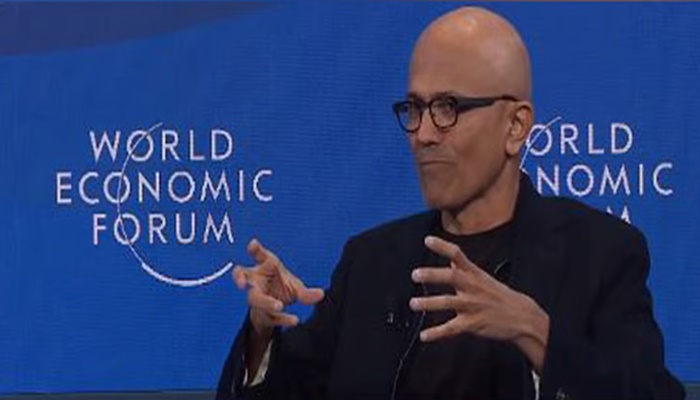I remember chatting with one of my coaching clients recently and she shared with me a striking workplace phenomenon:
Nichole (not her real name) was promoted straight from her role as an individual contributor to becoming not just a manager, but a senior director. And yet, she had zero management or leadership experience and zero training.
Mind you, her manager promoted her with the best intentions. She believed in her potential and saw that she could apply the same work ethic and high performance to her team. Yet, she was floundering.
But this situation is not unique to Nichole, neither is it anything new. This is something we’ve been seeing in organizations for years.
In fact, a study conducted back in 2018 by the World Economic Forum analyzed about 1,500 sales professionals promoted into management. It noted that many high performers had strong chances of being promoted, as we’d easily imagine.
Yet, when they were pushed into management, this correlated with a decline of about 7.5% in the sales performance of their team. Conversely, professionals who had strong collaboration experience and skills made better managers (even though some had poor sales performance) and increased the overall team performance, raising the bar for their team, proving that promoting based on individual performance results solely can hurt an organization.
In the same year, another study by the University of Texas Austin McComb’s School of Business confirmed that those promoted on the basis of being high performing individual contributors turned out to be the worst managers, with 28% less output and 33% lower profits. This is known as the “Peter Principle.”
Promoting Based On Performance Hurts Your Organization
Here’s what happens when you promote an employee based on their performance data alone:
You perpetuate a toxic workplace culture. Why? Because they’re likely to rely on outdated methods of leadership, and copy whatever they’ve seen exemplified in their current and previous bosses.
You place individuals into a leadership pipeline who have no business being there in the first place, because all that matters to them is driving results, achieving business revenue targets, and customer acquisition–not genuinely caring about their people and leading with empathy or emotional intelligence
You cause them to spial down a rabbit hole of confusion because all they know is how to achieve and exceed KPIs; management and leadership are entirely new worlds and they don’t know how to navigate all the ups and downs that come with it, that nobody talks about, like:
- Navigating and controlling team tensions and conflict
- Leading under pressure in times of change
- Having difficult conversations
- Recognizing and nurturing talent
- Long-term, big-picture thinking and knowing how to get their hands dirty in ops while maintaining a high-level overview
- Managing up
- And so many other areas that you only learn through training, practicing the appropriate skills before promotion, and being granted the space to learn more and make mistakes once you’re promoted
I was promoted into management very early on in my career, and while very young. My first promotion was when I had just turned 21, literally less than four months into my role, because I was a consistent high-performer in my function as an individual contributor. I was also demonstrating leadership skills such as mentoring my team members, taking initiative, finding gaps and creating solutions, and training others in my department.
I was fortunate to have a leadership team and a manager who believed in my potential. My manager, in particular, was not just a regular team manager, but a certified coach, so he took great pains to nurture and mentor me through my role, to ensure I had the best chances of succeeding. I was then promoted to a more senior-level management role internally just five months later. All this was possible because my company didn’t just promote me on based on performance, but they promoted based on the leadership skills I was already demonstrating. Plus, my boss gave me hands-on leadership coaching.
On the flip side, when, some time later, I worked in another company at a higher level, my management team were very impatient with me and I made gross mistakes that I later realized could’ve easily been prevented if I had been nurtured into my role and received the same level of hands-on training and mentorship.
I eventually left that role because it turned into an extremely toxic environment from both my direct reports and senior management.
My point?
Don’t just promote or thrust leadership responsibilities onto a high-performing employee, because outpacing revenue targets doesn’t directly translate to a strong employer brand or positive work culture. It can be tempting, especially if your leadership pipeline isn’t strong, but in the long run, it will hurt your organization.
Instead, here’s what to focus on and do next:
What You Should Do Instead
When evaluating if an employee has leadership potential, strongly consider emotional intelligence (EQ) as a criteria.
- Do they listen well?
- How well do they handle conflict?
- Do they coach and mentor their team members?
- Do they have a systems thinking approach?
- Do they find joy in seeing others win and succeed, even if they’re not in the spotlight all the time?
- Are they resilient under pressure?
- How much are they focused on building up others?
Additionally, ensure that you pair first-time managers with robust coaching and mentorship.
And finally, recognize that top performers don’t always have to be leaders. Being a high-performing employee doesn’t necessarily mean that a promotion is the next obvious option for their career progression.
Some people may be happier and more valuable through moving laterally within an organization or becoming experts and specialists, without having people management responsibility.
Rethink how you identify and support future managers.
And don’t forget: Gen Zers are entering the workforce in drones. Millennials are the managers today. In 10 years’ time, Gen Z will make up the majority of the workforce and will be the future leaders and managers.
How you approach leadership and management development now will impact how your organization will look 10 or more years from now.




















